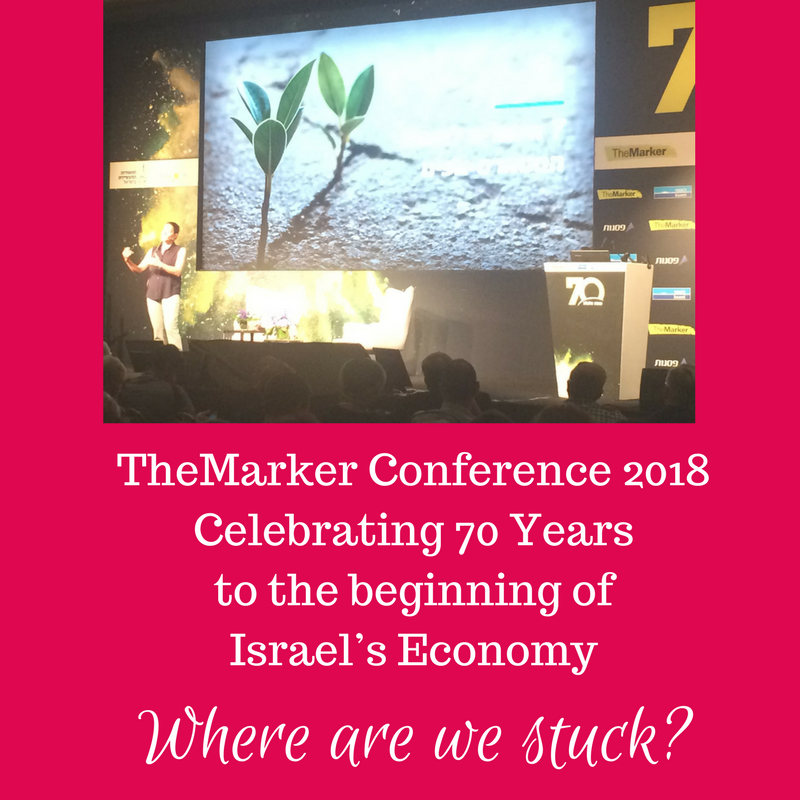On Monday March 19, 2018, TheMarker’s conference celebrated 70 years to the beginning of Israel’s economy. For all of Israel’s difficulties and complexities it has made astonishing progress. But where is it stuck?
The American Dream vs. The Israeli Dream
President Reuven Rivlin gave an important and inspiring speech, citing two main problems that Israel faces in its 70th year:
- Closing social gaps
- The ability of the “median person” to honourably support himself
In addressing the second issue, President Rivlin went on to compare between the American Dream and the Israeli Dream.
He defined the American Dream as one in which every person could allow themselves to own a home, a car and live a pretty good life. President Rivlin also pointed out that the American Dream was the goal for most Americans, or said another way, the middle class.
He juxtaposed that to the Israeli Dream. The Jewish doctor or the the successful startup exit.
The Israeli Dream, President Rivlin pointed out, is not aimed at the middle. In Israel, nobody wants to be the middle and as a result everybody in the middle or lower has been left behind.
President’s Rivlin’s wish for Israel’s 70th birthday was that “we know to build the middle, to find the middle and to love mediocrity.” That we care for the middle and take pride in it.
The middle is the complex and the in between. And if we take responsibility and care for our middle, we’ll be able to create more opportunities, a better future and the ability continue our climb to success.
The Israeli Banking System – stable but not efficient
Dr. Hedva Ber, supervisor of banks at the Bank of Israel, provided phenomenal insight into the state of banking in the State of Israel then (1948) and now.
In 1948, there were 93 banking institutions running; 23 of them were independent banks and the remaining 70 were credit associations that provided banking services. By 1970 there were only 12 banking institutions and since then the number has grown somewhat.
Israel’s banking system has grown into one of the most stable in the world. There are less players in Israel than in other countries, but as a result, the system is a lot less efficient. Dr. Ber’s current agenda is to help fuel banking innovation in order to promote more competition. She would like to see the banks using technology to help meet customer needs.
The Next Medical Revolution
Dr. Kira Radinsky, chief scientist and director of data science of eBay uses artificial intelligence to identify patterns, understand their significance and predict events. It has helped her and her team identify a pattern that can predict cholera and can ultimately help drop mortality rates from 50% to less than 1%. Dr. Radinsky went on to say that that Israel has a wealth of data that can be used to find the next revolutionary drug. As opposed to technology which becomes faster and cheaper as time goes on, the opposite effect takes form in the field of pharmaceutical drugs. Question is, will Israel be wise enough to develop the next medical revolution using its rich data? Time will tell.
Diversity and Democracy
Dr. Michal Tsur, co-founder and president of Kaltura discussed 7 essential elements that Israel’s hi-tech industry requires, perhaps the most important of which are diversity and democracy.
Diversity
As Dr. Tsur explained, diversity is the basis of every evolutionary process. It’s the ability to have or set different expectations and utilize various ideas, approaches and management styles. The more diverse our teams, the better chance they have at achieving excellence. But Israel has a polarization problem. Diversity is lacking, but it is diversity that is vital for economic power and significant social change.
Democracy
Democracy in its broadest sense is a marketplace of ideas. Combined with equality it is the basis for all entrepreneurship. When we treat entrepreneurship through democracy and through pluralism we’re open to both ideas as well as criticism. Entrepreneurship needs both in order to thrive.
Inclusion
An entire session was was especially devoted to the contribution of women to the economy. And while this is a positive step toward change, I could not help notice the vast majority of male speakers. Out of 28 speakers (including moderators) there were only 9 women – 32%. We can do better.


